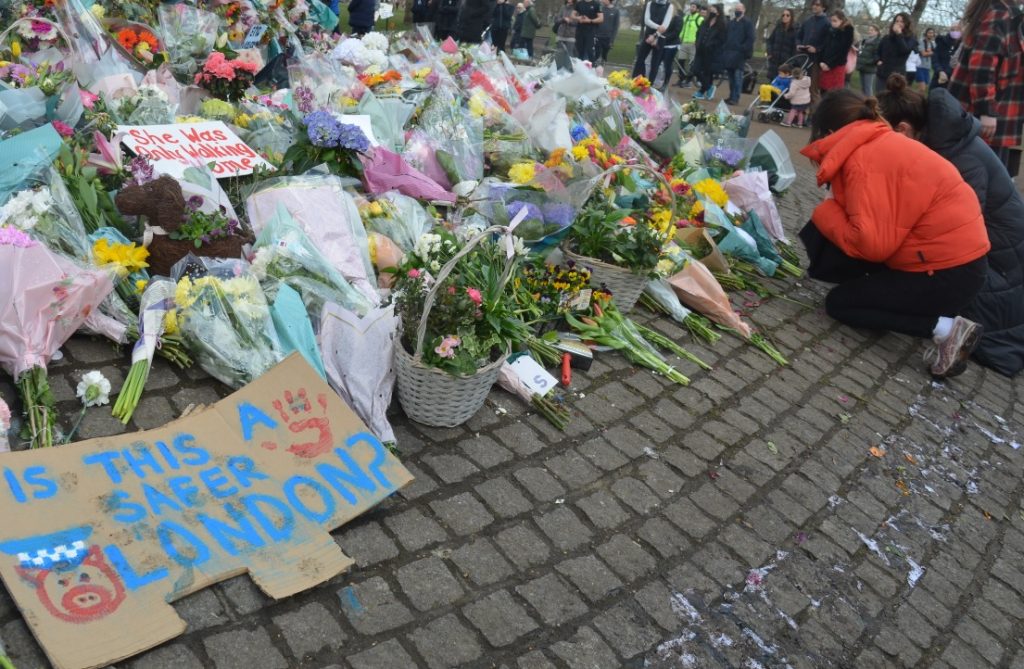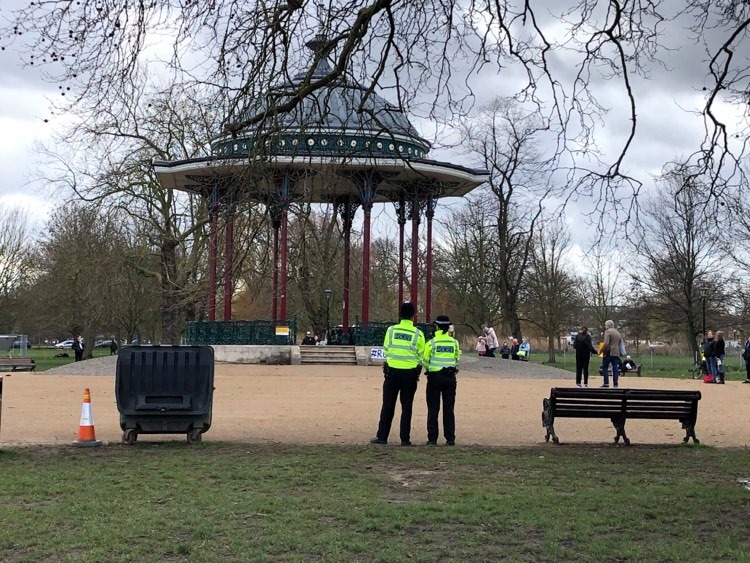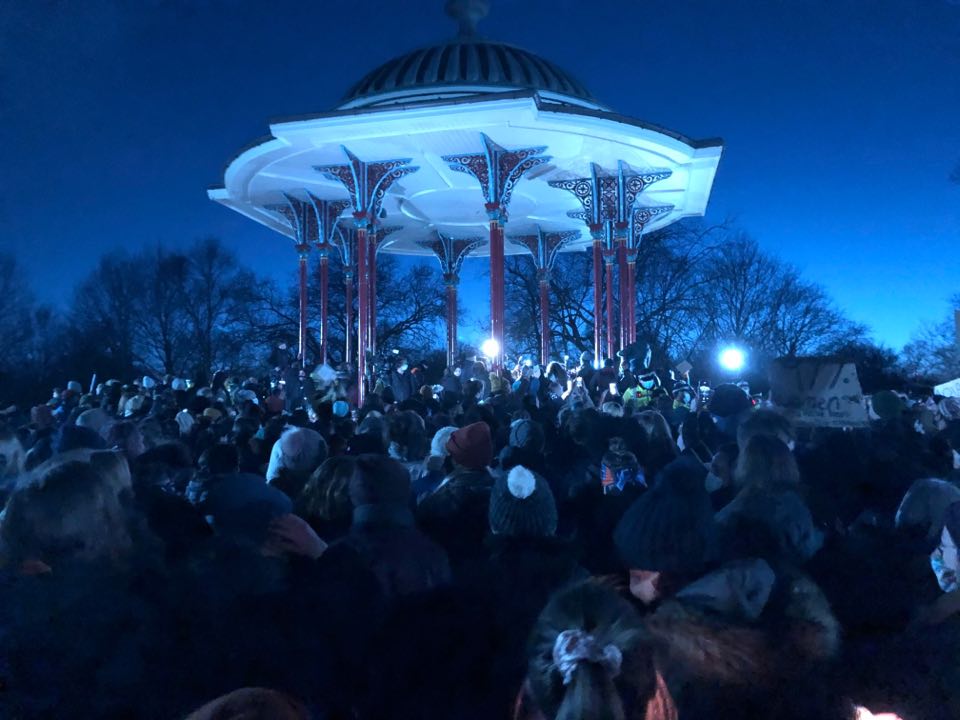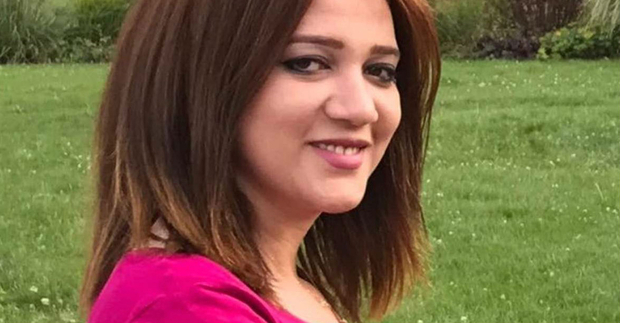
It was a Wednesday evening, a little over 10 days ago, when Sarah Everard, a 33-year-old marketing executive manager, disappeared in Clapham Common, a widely popular neighborhood park in the south of London.
Since then, a police officer and a woman were arrested on suspicion of abduction and murder, and Sarah’s remains have been found near Kent. On Friday 12 March, the police officer was arrested in relation to Sarah’s murder.
Usually, and tragically, like most women, I have grown used to the idea of other women disappearing: in China, where I lived for four years, the one child policy favored male offspring, resulting a sex imbalance and leading to wife-kidnapping as men in villages have sought to start families of their own; in Egypt, female activists and journalists are often detained and quickly forgotten by local and international media.
Perhaps, the case of Sarah would have also evaded my weary consciousness of the perpetual violence that strikes the lives of women. However, her case hit too close to home – quite literally.
Everard had disappeared 10 minutes away from my flat, and in the park where I walked in the morning, often alone and sometimes still in the dark. The park today carries a different atmosphere – less people, less joviality. Even the ponds where the ducks swim look austere, as if they can be hiding clues as to how the innocent soul might have been snatched.
On 14 March, a vigil-turned-protest erupted in the heart of Clapham Common. A reactive group, ReclaimTheseStreets, had organized a vigil for Sarah, but then cancelled the event to comply with COVID-19 regulations.
Despite their instructions, people started appearing at Clapham common from early in the morning to place bundles of flowers for the victim. Around six police officers monitored and sauntered by. The accompanying fact that it was a Metropolitan (Met) police officer who had brought upon Sarah’s death posited itself as an uncomfortable elephant in the park.

By nightfall, the park was packed with over 100 people chanting and holding posters. There was no space to walk to the bandstand where tributes for Sarah were paid; people took to making small shrines under trees, carefully nursing candlelight against the strong London wind, and placing hand-written posters and notes under bare branches.
The MetPolice was continuously booed as force was exerted on some protesters, with some women being detained and taken away, much to the later chastisement of government figures. The crowd furiously chanted ‘Arrest Your Own’ and ‘Leave My Sister’ among many other slogans. Tension was palpable in the air, and emotions ran high – a concoction of bitter sadness, anger and disappointment.

Friends and acquaintances of mine often enthuse about how London is safe overall, especially for women, and especially compared to Cairo.
However, between 2018 and 2019, it was estimated that women in London were on the receiving end of 20,482 offenses, with five out of six women experiencing sexual assault and not reporting it. Perhaps these statistics seem weak for a city of almost nine million residents.
Yet, these are the numbers that are attested and recorded, with a very real segment of society keeping silent about the experiences they endure.
Since moving to London, I have also been on the receiving end of various forms of harassment – from men invading my personal space in the streets, to having little comments thrown at me in supermarkets. Decidedly, these are not special incidents by nature: my flatmate and other women I have spoken to have endured their own experiences of harassment in the English capital.
Some of their safety and avoidance strategies include texting one another after a night out to ensure the other has made it safe back home, and refusing to walk in the streets alone.
Danger can also extend to women in public spaces by day, especially while jogging. An England Athletics survey in 2017 revealed that one in three, out of 2000 women, had experienced harassment while jogging.
Admittedly, statistics are grimmer when factoring sexuality, and race: according to a 2016 study titled ‘The London Sexual Violence Needs Assessment 2016 for MOPAC & NHS England’ black victims enduring harassment were predominantly young girls aged between 12 to 19 (around 39 percent), while lesbian asylum seekers and migrants were at risk of rape at an increased rate.
In Cairo, sexual harassment feels more persistent and carries an everyday quality.
Within one street, I can be on the receiving end of five different catcalls and there is even less freedom of clothing than in most cities I’ve lived in due to perpetual victim blaming.
More alarmingly, Egypt suffers from a genuine phobia of statistics and reporting: this is quite evident as the only reference given by news outlets and studies as to the prevalence of harassment is a 2013 United Nations study which claims that “virtually all Egyptian women have been victims of sexual harassment,” by a frequency of 99.3 percent. Nonetheless, President of the National Council for Women (NCW), Maya Morsy, told Egyptian Streets in an interview that the rate of sexual harassment in Egypt was only a ludicrous 9.6 percent in 2016.
In both cities, attitudes to sexual harassment have still focused on women and their interaction with public spaces: following Everard’s disappearance, the police told women to steer clear of the streets at night. In Cairo, women are heavily policed by their own families and community members for staying out late, venturing into certain areas of the city on their own, riding public transportation (where sexual harassment incidents are more recurrent), and wearing specific ‘harassment-inducing’ clothing.
Surprisingly, it is only in Cairo – and not in London – that I have felt able to talk back and admonish my harassers who clearly abuse the fact that women rarely report assault while risking victim blaming.
Fueled by feelings of ‘alienness’, uncertainty whether I would receive help from bystanders and fear that a harasser would react negatively to my backlash, I have often chosen to stay silent, having to later on digest guilt and what I have deemed, of myself, as ‘bad feminism’ for not speaking up. These feelings have been shared by others: a Thomson Reuters Foundation report revealed that only 51 percent of women felt that assistance would be available to them if they were being harassed in public transportation.
In England, I have only once been able to tell a man to leave me alone, on a crowded Friday night on Oxford street prior to the current lockdown. But even then, the experience had been difficult as I felt – as a foreign Arab woman – ‘troublesome’ although the harassment was no fault of my own.
Public street harassment is particularly tricky – often ephemeral, quick, and anonymous; there is little to do in retaliation to it unless a police officer is nearby or unless the victim can physically haul the perpetrator to a police station.
In the United Kingdom, there is no law against street sexual harassment although women can file against repeated conduct of harassment.
In Egypt, street harassment falls under Article 306 of Egypt’s penal code which sets out that perpetrators of verbal sexual harassment in a private or public place could face a sentence of a minimum of six months in prison and be fined no less than EGP 3,000 (almost £136.78), with repeated offenses resulting in a fine of over EGP 5,000 and a jail sentence of a year.
Moreover, unwanted sexual contact is also punishable by Egyptian law which states that violators could face a one-year in prison sentence as well as a fine ranging between EGP 10,000 ( £457) and EGP 20,000 ( £915). It is unclear how successfully these laws deter sexual harassment, after all, Egypt fails to divulge the number of women who have reported their harassment or found justice.
There have also been cases where women in Egypt have met further backlash for speaking up, such as 33-year-old human rights activist and actress Amal Fathy who was handed a two-year prison sentence as well as an EGP 10,000 fine on 29 September for “spreading false news” by speaking about two incidents of sexual harassment and highlighting that the Egyptian government did not protect women against the epidemic.

Almost a decade ago, UN Women launched a flagship initiative titled ‘Safe Cities and Safe Public Spaces’ in order to implement policies and efforts aimed at making five ‘southern’ cities safer and more responsive to harassment of women. The cities were Kigali (Rwanda), Quito (Ecuador), Delhi (India), Port Moresby (Papua New Guinea) and, evidently, Cairo – all southern. The initiative expanded over time to 50 cities, eventually including London. In an interview, Lizzette Soria, the initiative’s policy specialist, highlighted that a crucial aspect for the success of this program was the need to communicate with men and enforce positive masculinity.
It was in Egypt that I sometimes found support from men in the streets. They had been the ones to intervene and tell other men to stop harassing, and although this should not be the case as my own voice suffices, it had proved to be of help on the days I needed it. That assistance often came with the price of compliance to social and cultural conventions.
However, almost no woman I know has felt safe in Egypt, even less so in the last few days, following the gruesome murder of a 34-year old Egyptian woman at the hands of her landlord and doorman who pushed her from the sixth floor for having a male visitor over.
In both cities, systems have failed us tremendously: the laws, the policies, the calls for awareness and the superficial celebrations for International Women’s Day on 8 March have fallen on deaf ears. The danger is more piercingly deafening for trans, differently-abled, Black and minority women who are not granted half of the attention and good wishes Sarah has been given when abused or murdered.
If there is one element I do strongly, nonetheless, praise London for, is its ability to still gather women, protesters and vigil-attendees in public spaces. Women can gather in parks, near pagodas and bandstands to celebrate one another or mourn the death of one of their own, even if there are risks associated with such gatherings. In Cairo, the last protests women could properly organize and attend for their rights were between 2011 and 2013.
Today, these protests are an impossible reality.
*The opinions and ideas expressed in this article do not reflect the views of Egyptian Streets’ editorial team or any other institution with which they are affiliated. To submit an opinion article, please check out our submission guidelines here.







Comments (2)
[…] Source link […]
[…] . Read the full article in English […]